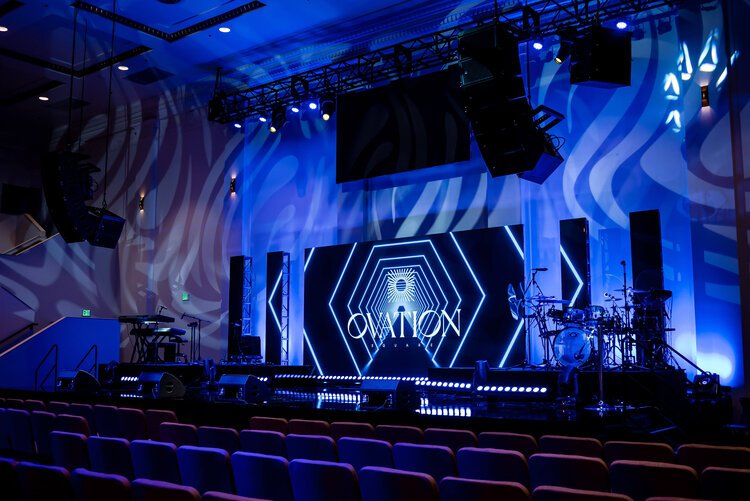Understanding the Value of Events Administration in the Production Sector
The importance of events administration within the production sector can not be overstated, as it serves as an essential part in bridging the gap between creative vision and reliable implementation. By emphasizing logistical sychronisation, spending plan adherence, and stakeholder interaction, successful occasions can elevate brand name interaction and operational performance.
Duty of Occasions Monitoring
Events administration plays a pivotal function in the production industry, working as the bridge in between creative principles and substantial results. It includes a vast array of obligations, consisting of planning, carrying out, and reviewing various occasions, which are essential for showcasing manufacturings, involving audiences, and cultivating cooperation among stakeholders.
One of the important features of occasions monitoring is logistical control. This includes safeguarding places, preparing devices, and managing timelines to ensure that every information aligns with the overarching vision of the manufacturing. Furthermore, events supervisors are charged with budgeting and source allocation, which requires an eager understanding of financial restraints and the capacity to maximize worth.
In addition, efficient interaction and stakeholder administration are crucial elements of occasions monitoring. Specialists in this area need to liaise with a diverse set of individuals, including musicians, enrollers, and suppliers, to produce a cohesive experience. They additionally play an important duty in marketing and promo, using various networks to produce interest and attendance.

Benefits for Manufacturing Firms
An effective events administration method can produce significant benefits for production companies, improving their general functional performance and market presence. By improving the preparation and implementation of occasions, manufacturing companies can allocate sources better, decreasing costs related to mismanagement or final adjustments. This performance not only saves cash but additionally permits teams to concentrate on their core competencies, ultimately bring about higher-quality outputs.
In addition, well-executed occasions can act as effective advertising tools, boosting brand presence and cultivating stronger relationships with customers, stakeholders, and the general public. Engaging events create opportunities for networking and partnership, which can result in brand-new collaborations or tasks that intensify a business's reach within the industry.
Additionally, events can offer important insights through target market comments and involvement metrics, allowing production business to refine their methods and offerings. This data-driven method can lead to more targeted marketing efforts and boosted consumer fulfillment.
Key Elements of Effective Occasions
Successful events depend upon several crucial elements that add to their general influence and effectiveness. Clear goals are essential; comprehending the function of the event enables for concentrated planning and implementation. This includes determining the target audience and customizing the occasion's material and activities to meet their needs.
Furthermore, precise preparation is critical. This consists of developing an in-depth timeline, designating functions and responsibilities, and handling budget plans successfully. Attention to logistics, such as venue selection, devices services, and catering services, can not be overlooked, as they straight affect the occasion's success.
Another essential element works interaction. This incorporates not only internal coordination amongst staff member however likewise outside messaging to stakeholders and guests, ensuring everyone is notified and involved.
Obstacles in Event Sychronisation
Collaborating an occasion provides an unique set of difficulties that can impact its total success. Among the most significant hurdles is managing time successfully. Events often have limited schedules, and address any kind of delay can bring about a cascading result on succeeding activities, diminishing the experience for participants. Furthermore, logistical complexities such as location option, transport, and devices leasings call for thorough planning and sychronisation.

Budget restrictions likewise present a considerable challenge. Occasion coordinators should browse economic limitations while making every effort to fulfill the assumptions of stakeholders, which usually requires innovative options to make best use of resources. Stakeholder monitoring can be specifically detailed, as varying rate of interests amongst enrollers, suppliers, and customers must be harmonized to attain a natural vision.

Future Fads in Events Administration
Progressively, the occasions administration industry is welcoming technological innovations that are improving the method occasions are prepared and carried out. One significant fad is the increase of virtual and hybrid occasions, which offer better availability and versatility for guests (production companies in charlotte nc). This change permits organizers to get to larger target markets while lowering logistical costs related to standard in-person gatherings
One more trend is the combination of data analytics devices to improve event experiences. By accumulating and analyzing guest information, occasion managers can tailor experiences to much better meet target market preferences and boost involvement. This data-driven strategy not only boosts participant complete satisfaction yet additionally provides valuable understandings for future events.
Sustainability is also ending up being a focal point in events administration, with companies focusing on environmentally friendly practices such as you could check here minimizing waste and carbon footprints. This trend straightens with more comprehensive societal changes in the direction of ecological consciousness, attracting a market increasingly worried about sustainability.
Last but not least, making use of immersive technologies, such as augmented reality (AR) and digital fact (VR), is readied to reinvent event experiences, producing appealing and interactive atmospheres that leave enduring perceptions on attendees. As these patterns remain to progress, they will certainly form the future landscape of events administration in the manufacturing industry.
Verdict
In conclusion, efficient events management is necessary for the manufacturing sector, bridging the gap between creative ideas and their execution. Eventually, a strategic approach to events monitoring is important for continual industry development.